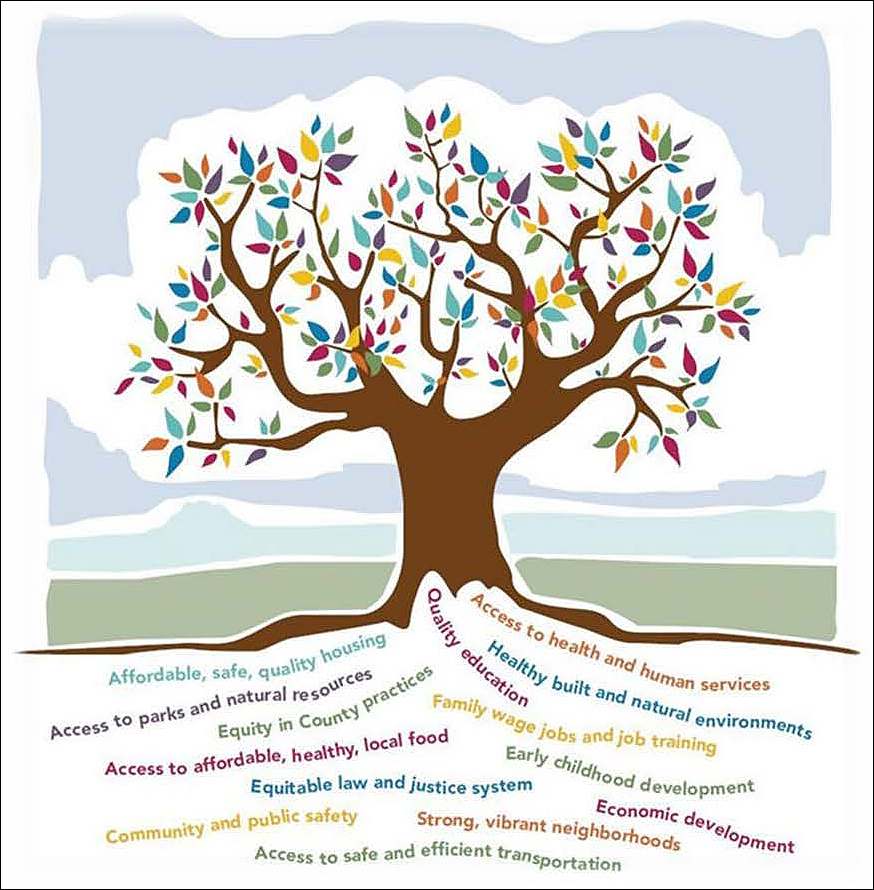What are Social Determinants of Health?
According to the World Health Organization, social determinants of health are the circumstances in which people are born, grow up, live, work and age, and their access to health care. These circumstances are in turn shaped by a wider set of forces: economics, social policies, and political will.
In other words, race and place matter in determining the quality of our health outcomes, in addition to our personal choices and behaviors. We know that the clustering of social, economic, and environmental health risks in low-income and minority neighborhoods limits opportunities for people in these communities to live healthy lives.
U.S. Healthy People 2020, a national plan to improve the health of all Americans over the next decade, highlights the importance of creating social and physical environments to promote good health. The National Partnership for Action to End Health Disparities and the National Prevention and Health Promotion Strategy are working to improve health across the U.S. by collaborating with federal agencies, including those responsible for education, transportation, and housing.
Further Reading
- Williams, D. R., & Sternthal, M. (2010). Understanding Racial/ethnic Disparities in Health: Sociological Contributions. Journal of Health and Social Behavior, 51(Suppl), S15–S27.
- Scott AJ, Wilson RF. Social determinants of health among African Americans in a rural community in the Deep South: an ecological exploration. Rural Remote Health. 2011;11(1):1634.
